I tried fermented food for a month and this is what happened
Can eating fermented foods such as sauerkraut, blue cheese and live yogurt really revolutionise your health? Our writer gave it a go for four weeks, with some mixed results.

Can eating fermented foods such as sauerkraut, blue cheese and live yogurt really revolutionise your health? Our writer gave it a go for four weeks, with some mixed results.

When Tim Spector doles out health advice, the world listens. The professor of epidemiology at King’s College London has gained an almost cult-like following with his work on how diet impacts our health. And he’s pretty much single-handedly responsible for making the world aware of the words “gut microbiome”.
After interviewing Spector (also the founder of nutritional advice company Zoe) at a literary festival last year and witnessing the sell-out audience hang on his every word, I acted on his recommendation to include 30 different plants a week in my family’s diet.
It’s perhaps no coincidence that it’s been a year since any of the four of us has had a cough, cold or flu.
With Spector’s new book Ferment has come yet another level of nutritional guidance. So why is he asserting that we should all now be adding a further element to our diets in the shape of fermented foods, including live yogurt, kefir, kimchi, sauerkraut, blue cheese and kombucha (fermented tea)?
It all comes down to the gut microbiome again – more precisely how to build up the number and quality of the microbes in our gut.
“These microbes are microscopic creatures that together weigh between one and two kilos, so a similar size to your brain,” he explains.
“They produce key chemicals for your body that control your metabolism, hunger, weight and, importantly, your immune system.
“The gut microbiome is crucial for fighting ageing and cancer – and these microbes are only as good as what you feed them.”
Fermented foods contain live microbes (probiotics). “Probiotics dampen down inflammation and fine tune our immune system, acting a little bit like a vaccine and getting us in a good state to fight infections, diseases, cancers and ageing,” says Spector.

He says they are best eaten little and often: “In our community study with 10,000 volunteers, we found that most people in the UK are only having one portion every two or three days.
“But when we got them to have three portions a day over several weeks, more than 50% of them noticed improvements in how they felt, from reduced bloating and increased energy to fewer hunger pangs and even improved mood.”
With all that in mind, I decided to conduct my own personal experiment by introducing as many fermented foods as possible into my diet over four weeks.
I switched out toast and jam for a mix of raspberries and blueberries with dollops of both kefir and live coconut yogurt. Once or twice a week, I’d have a sourdough bagel with butter and Marmite.
According to Spector’s research, sourdough bread is healthier than commercial breads, can help with IBS symptoms and may even reduce blood sugar spikes. Meanwhile, Marmite is a good source of vitamin B12.
Instead of a shop-bought sarnie, I tried Gail’s Spelt, Cauliflower and Ferments Salad (£6.90), which includes fermented peppers, purple carrots and lemon kraut.
And I sometimes enjoyed Stilton or Roquefort cheese with grapes and a few crackers – blue cheese is a great source of healthy microbes, but all good-quality cheese has live microbes.
I added a spoonful of sauerkraut or kimchi to whatever meat or vegetables I was eating – initially shop-bought, such as Vadasz Kimchi or Super-Beet Kimchi, but then made according to Spector’s recipe (see panel below).
In my salad dressing, I switched out balsamic vinegar for Willy’s Organic Live Apple Cider Vinegar a good brand of live vinegar, though there are others.
Although I had visions of making my own kombucha, I ended up buying Momo kombucha or Remedy kombucha from a local grocer (both recommended in Ferment) and drank one, occasionally two, per day. I also had two or three coffees, as Spector’s research indicates coffee has a strong link with positive changes to the gut microbiome.
Finally, I switched from white to red wine as – of those drinking alcohol in Spector’s study – red wine drinkers had the healthiest microbes.
The effect of my diet overhaul was dramatic. Those of a delicate disposition may wish to look away now! During the first week, I found myself going to the loo more often, sometimes with explosive results. I also felt tummy discomfort for the first week to ten days, and once, after a particularly large portion of kefir at breakfast, I had to turn back on my way to the bus stop because of an urgent need to use the loo.
In the first few weeks, there was a distinct increase in the gas produced by my intestines, which didn’t endear me to my family.
I soldiered on, however, and by the end of the second week, everything settled down. More subtle changes emerged. I woke earlier in the morning full of verve, with higher-than-usual energy levels throughout the day. I felt noticeably more upbeat. I also thought my skin looked visibly clearer and plumper.
Sharing my findings with Spector, he wasn’t surprised. “We did this on 10,000 people, so we know it works,” he said.
“Getting used to some of the ferments can be difficult for a couple of weeks, but most people then get used to it and things settle down. And the benefits, widely reported, are exactly the same as you found.”
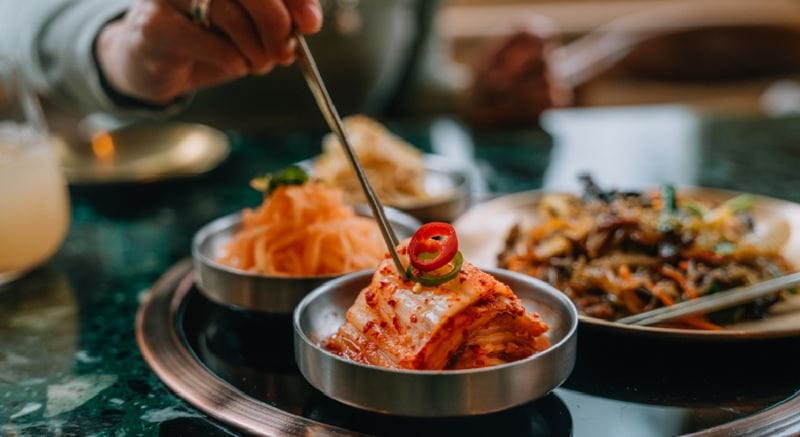
I did a Zoe gut microbiome test before I started, and again at the end of the four weeks. My first result came back with a “good” score of 73 out of 100, calculated according to a complex formula. I had 37 of a possible 50 “good” bacteria and seven out of 50 “bad” bacteria.
A month later and the score rose to 75 out of 100 and higher levels of many of the “good” bacteria, with one of the seven “bad” bacteria eliminated and a reduction in the level of all but one of the others.
“You were already starting from a strong starting point, as you had a pretty healthy diet, but you’ve managed to reduce the pro-inflammatory bugs that could make you sick,” said Spector.
“You’re squeezing them out gradually by outnumbering them with the good guys. The key is to now continue with ferments in your diet as they will go on protecting you.”
I think most of my food changes will become permanent. I now like the taste of sauerkraut and kimchi in salads, my palate craves kombucha over other soft drinks, and a breakfast of berries and live coconut yogurt is a delicious start to the day.
It’s only kefir I’ve found impossible to enjoy, so that will be booted off the shopping list. Stilton, though, will now be in my fridge year-round, not just at Christmas.
Traditionally, sauerkraut is fermented over 2-4 weeks at 15-20°C. Red cabbage takes longer to ferment than white, and both work faster if you add another vegetable (like a small carrot or two) that contains a range of accessible sugars for the microbes.
(Makes 1 large jar)
1 Trim the base of the cabbage – peel away the outer leaves and set aside for use later. Cut the cabbage into quarters and finely shred the cabbage and carrot (if using).
2 Tip the cabbage into a large bowl, add the caraway seeds and weigh it all. Add salt at 2% of the weight (so at 600g, you need 12g salt).
3 Using your hands, massage the salt into the shredded cabbage for a few minutes until it starts to soften. Cover the bowl with a clean cloth or plate and set aside for between 30 minutes and 3 hours until the cabbage is very soft and has released water.
4 Scoop the cabbage and resulting liquid into a clean 1-2 litre jar and pack it down hard so it’s submerged under the briny liquid, with a clear 5cm gap between the cabbage and the top of the jar. Cover the cabbage with the reserved outer leaves and place a weight on top. Close the lid but leave it loose – if the jar is sealed tight it runs the risk of exploding.
5 Put the jar on a plate in a dark cool place out of direct sunlight and leave for 2-3 days. Burp the jar daily to release gas. After 7 days the sauerkraut should be fermenting and can be stored in the fridge. Use within 1-2 months, depending on how soft you like it.
Ferment by Tim Spector, RRP: £25 (Jonathan Cape)
(Hero image credit: Getty Images)

Your chance to win a 14-day tour around the Rockies and Vancouver for two, worth more than £8,800.
T&C’s apply.

Get 3 months free, plus a £125 Totally Rewards Wellness Gift Card when you start a new policy by the end of 19 February 2026. T&Cs apply.
Underwritten by Bupa Insurance Limited.

Expert nutritionists break down the most important foods to eat in each decade as we get older.

We reveal the 7 best tinned foods to supercharge your health while saving you time and money.

From ketchup to mayo – how healthy are your sauces? We find out the pitfalls and surprising benefits of our favourite condiments.

Could honey be the sweetest way to supercharge your health this year? Our experts explain the benefits and which to buy.
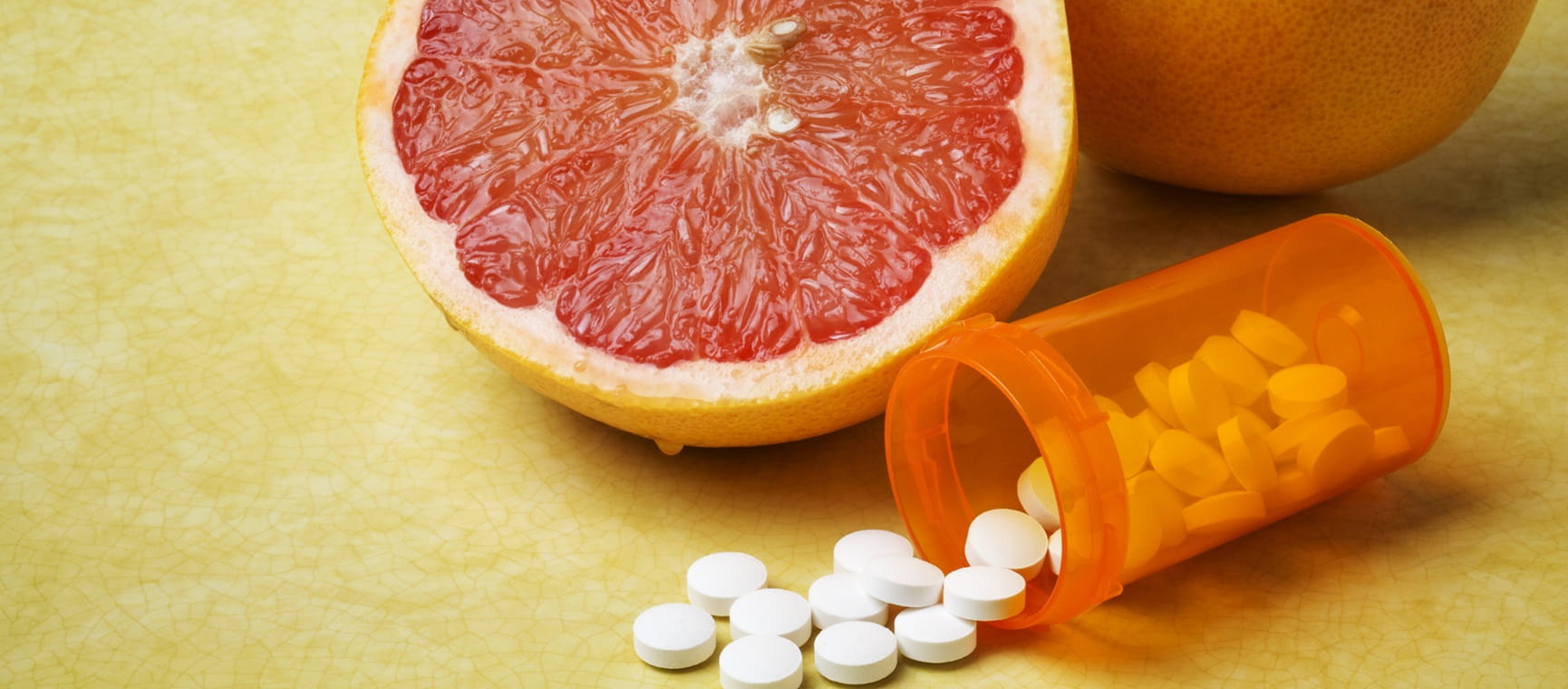
Our expert guide to the common foods you shouldn't mix with prescription drugs.

Experts reveal whether chilled supermarket soups are worth the extra cost and if some flavours are better for you than others.
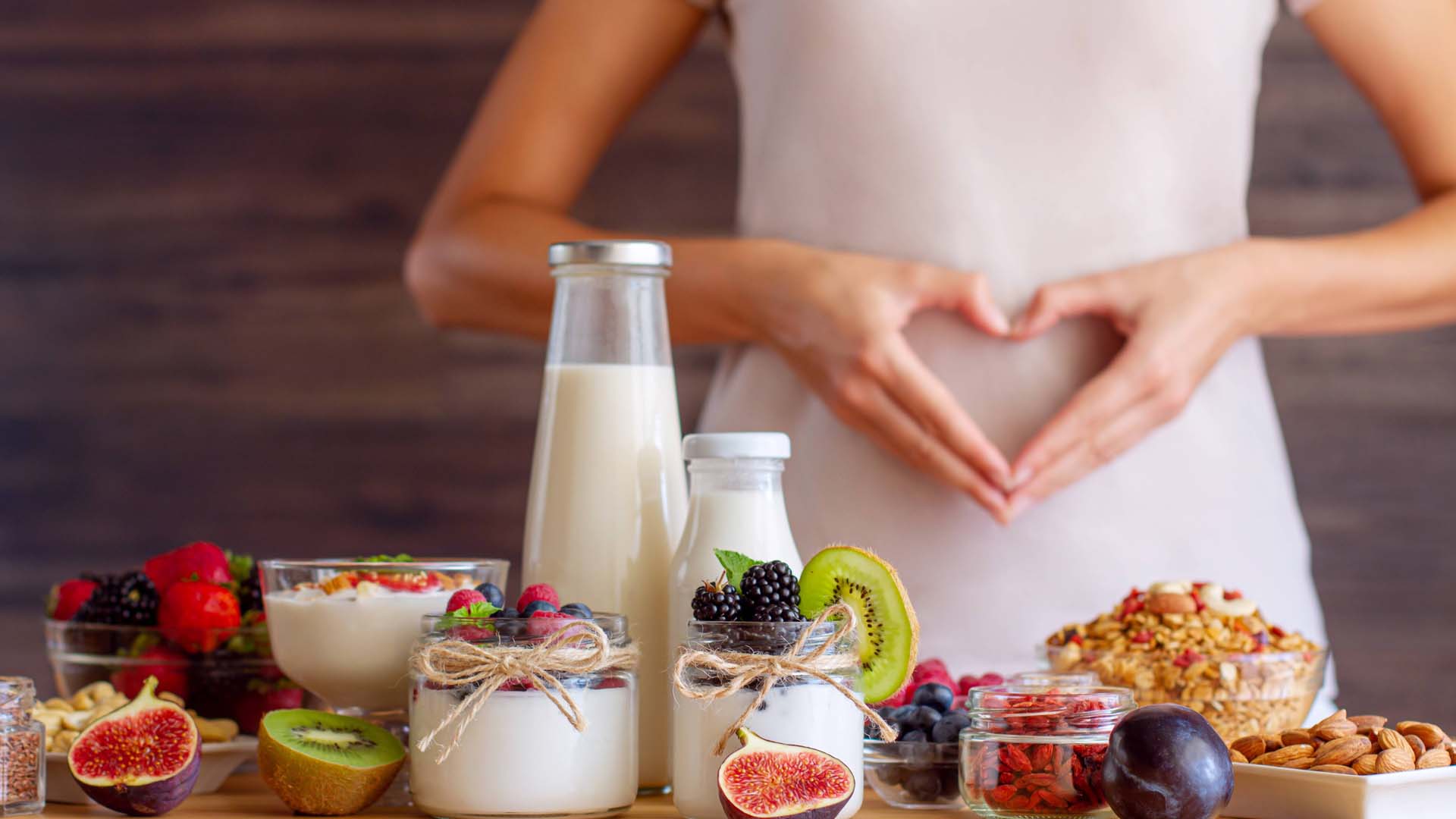
Looking after your gut health could be one of the biggest things that you can do for your overall health. Here are the best foods to keep your gut happy.
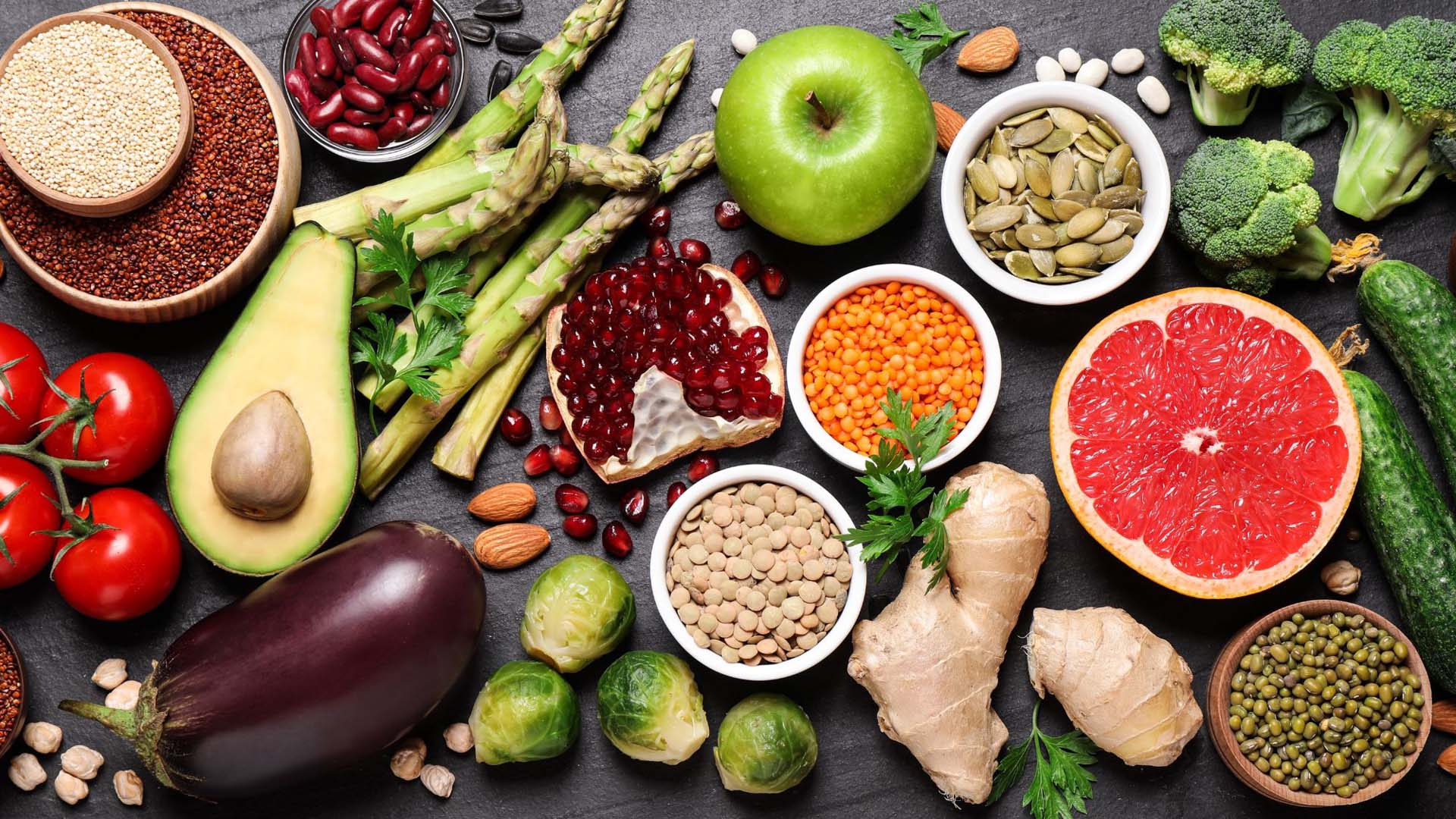
The foods that could help you live longer and protect against chronic illness.


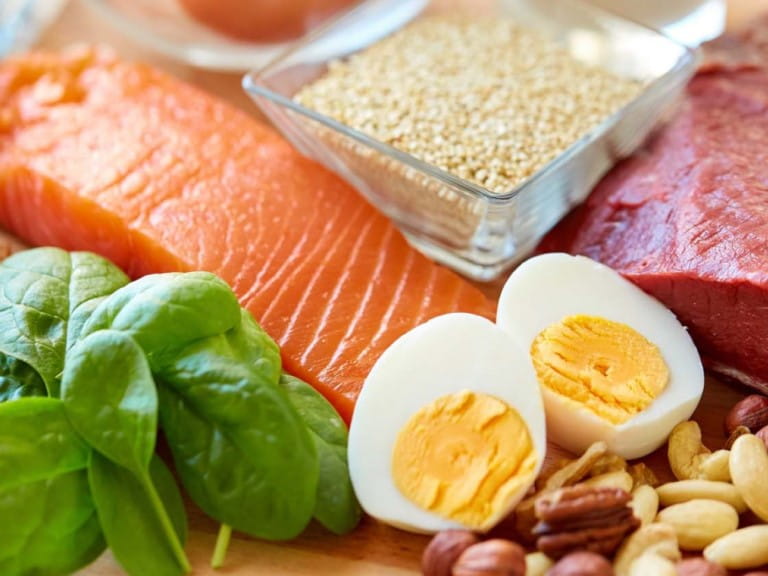
Everything you need to know about protein, from how it benefits your body to the best high-protein foods – and how much you really need.